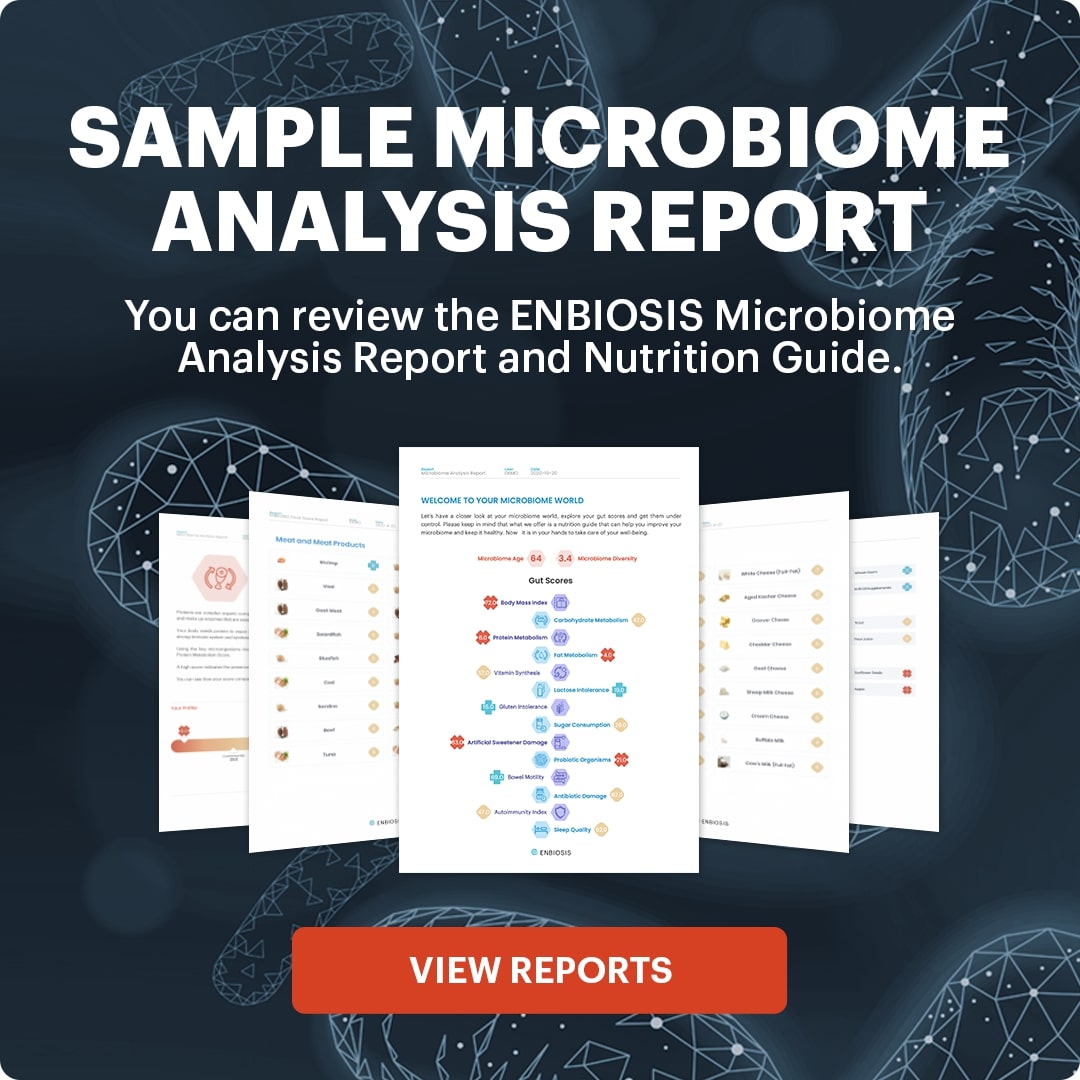Table of Contents
Unlocking the Gut–Pain Connection: Could Your Microbiome Be Driving Fibromyalgia?
Fibromyalgia is a chronic health condition which is characterized by widespread pain and tenderness in the muscles and bones, as well as fatigue, sleep disturbances, and cognitive issues often referred to as “fibro fog”. It is a complex disorder that can have a massive impact on day-to-day life, often leaving individuals struggling with persistent pain and a multitude of debilitating symptoms that they may not even realize are linked.
Fibromyalgia is known to impact around 5% of the global population and predominantly affects women, with between 80 to 96% of cases being diagnosed in females. (1) Despite extensive research, the exact cause of the condition remains unclear. Researchers believe that a combination of factors may trigger its development, including genetics, certain infections, severe emotional or physical trauma, and abnormalities in how the brain and nerves process normal pain signals. However, a growing understanding also suggests that our gut microbiome could be a key player in causing and worsening fibromyalgia symptoms.
A Microbiome Out of Balance: What’s Different in Fibromyalgia Patients?
Dysbiosis within our gut microbiome can increase susceptibility to many health conditions, including chronic pain disorders such as fibromyalgia. Of particular note, recent studies have identified significant differences in the gut microbiomes of people living with fibromyalgia compared to those without the condition.
For instance, a study conducted in Canada identified 19 species of gut bacteria that were present in higher or lower numbers in women with fibromyalgia. (2) In particular, some of the well-characterized taxa that were lower in abundance included F. prausnitzii, B. uniformis, P. copri, and Blautia faecis. The overall makeup of the gut microbiome showed that fibromyalgia patients had fewer diverse types of gut bacteria. The main groups of bacteria that were present were from the phyla Bacteroidetes, Firmicutes, Proteobacteria, and Actinobacteria, but the balance among these was altered in fibromyalgia patients, compared to healthy controls. The researchers also found an interesting connection between the abundance of certain bacteria types and the severity of fibromyalgia symptoms.
Further supporting these findings, a separate study reported that gut bacterial diversity is reduced in fibromyalgia patients. Specifically, the abundance of Bifidobacterium and Eubacterium bacteria was significantly decreased. (3) Notably, these bacteria are involved in the metabolism of neurotransmitters within the brain, which may go some way to explaining the cognitive symptoms associated with fibromyalgia.
In another study, researchers identified changes in the relative abundance of certain bile acid-metabolizing bacteria in fibromyalgia patients. (4)This was also accompanied by significant alterations in the serum concentration of secondary bile acids, including a marked depletion of α-muricholic acid which was highly correlated with symptom severity.
How Might These Changes Contribute to Fibromyalgia?
These imbalances in our gut bacteria may contribute to fibromyalgia by influencing several key systems in the body. Firstly, when our gut microbial balance becomes disrupted, it can lead to the development of systemic inflammation. This inflammation is thought to be a major factor in the chronic pain and tenderness experienced by people with fibromyalgia. Dysbiosis can cause the intestinal lining to become damaged and more permeable, allowing inflammatory molecules to enter the bloodstream and cause a widespread inflammatory response.
Secondly, the gut plays a significant role in producing important neurotransmitters, such as serotonin, which help to regulate mood and pain signaling processes. When our gut microbiome is out of balance, this may interfere with the production and function of these neurotransmitters,
leading to common fibromyalgia symptoms, such as, heightened pain sensitivity, fatigue, and mood changes. In fact, several signaling molecules derived from gut bacteria, including by-products, metabolites, neurotransmitters, and neuromodulators, are known to regulate pain pathways in both the peripheral and central nervous systems. (5)
Lastly, the microbes within our gut are also closely linked to our immune function. Changes in our gut microbial profile may alter how the immune system responds to potential threats. This may result in an overactive immune response and further inflammation throughout the body.
Can Changing Gut Health Improve Fibromyalgia Symptoms?
Current treatments for fibromyalgia may offer only limited relief and the effectiveness of these approaches can vary significantly between patients. So could improving our gut health unlock new ways of dealing with debilitating fibromyalgia symptoms? While research is still developing, early evidence suggests that it might. Optimizing the gut microbiome can have a positive effect on all of the factors that were mentioned in the previous section. By restoring balance to the gut, it may be possible to reduce inflammation, improve neurotransmitter production, and positively influence pain signaling pathways. This could help to alleviate fibromyalgia symptoms such as pain, fatigue, and mood disturbances, among others.
In support of this, probiotic supplementation has shown benefits in fibromyalgia management with a recent randomized, double-blind, placebo-controlled clinical trial showing that probiotic supplementation significantly improved depression, anxiety, sleep quality, and pain scores in fibromyalgia patients. (6) Likewise, personalized nutrition can also play a crucial role in improving gut health and managing fibromyalgia. A recent study found that a personalized Mediterranean diet, tailored to individual BMI, age and food allergies, led to improvements in disability scores, fatigue, and anxiety in fibromyalgia patients. (7)
While these studies demonstrate the positive impact of dietary interventions on fibromyalgia, tailoring those interventions based on individual microbiome profiles could take things to the next level. This personalized approach could address unique imbalances in the gut microbiome and potentially lead to even more significant improvements in symptoms.
Your Gut, Your Way Forward: Enbiosis’ Precision Approach to Fibromyalgia
As we’ve explored, our gut microbiome has strong links with the development and progression of fibromyalgia, and personalized interventions hold immense potential for managing symptoms. This is where ENBIOSIS comes in. We offer cutting-edge, AI-driven microbiome analysis and personalized recommendations that can help to optimize gut health and potentially find relief from fibromyalgia symptoms.
Contact us today to find out how our comprehensive gut microbiome testing can identify specific imbalances and provide insights into how these may be contributing to symptoms.
Contact UsReferences:
1. Ruschak, I., Montesó-Curto, P., Rosselló, L., Martín, C. A., Sánchez-Montesó, L., & Toussaint, L. (2023). Fibromyalgia Syndrome Pain in Men and Women: A Scoping Review. Healthcare, 11(2), 223.
2. Minerbi, A., Gonzalez, E., Brereton, N. J. B., Anjarkouchian, A., Dewar, K., Fitzcharles, M.-A., Chevalier, S., & Shir, Y. (2019). Altered microbiome composition in individuals with fibromyalgia. PAIN, 160(11), 2589-2602.
3. Clos-Garcia, M., et al. (Year). Gut microbiome and serum metabolome analyses identify molecular biomarkers and altered glutamate metabolism in fibromyalgia. eBioMedicine, 46, 499-511.
4. Minerbi, A., Gonzalez, E., Brereton, N., Fitzcharles, M.-A., Chevalier, S., & Shir, Y. (2023). Altered serum bile acid profile in fibromyalgia is associated with specific gut microbiome changes and symptom severity. PAIN, 164(2), e66-e76.
5. Guo, R., Chen, L., Xing, C., & Liu, T. (2019). Pain regulation by gut microbiota: Molecular mechanisms and therapeutic potential. British Journal of Anaesthesia, 123(5), 637-654. https://doi.org/10.1016/j.bja.2019.07.026
6. Aslan Çİn, N. N., Açik, M., Tertemİz, O. F., Aktan, Ç., Akçali, D. T., Çakiroğlu, F. P., & Özçelİk, A. Ö. (2024). Effect of prebiotic and probiotic supplementation on reduced pain in patients with fibromyalgia syndrome: a double-blind, placebo-controlled randomized clinical trial. Psychology, health & medicine, 29(3), 528–541.
7. Casini, I., Ladisa, V., Clemente, L., Delussi, M., Rostanzo, E., Peparini, S., & Aloisi, A. M. (2024). A Personalized Mediterranean Diet Improves Pain and Quality of Life in Patients with Fibromyalgia. Pain and Therapy, 13(3), 609. https://doi.org/10.1007/s40122-024-00598-2








